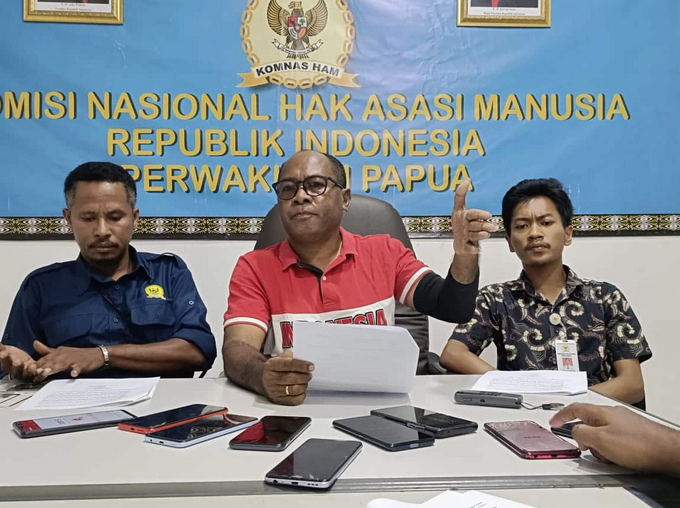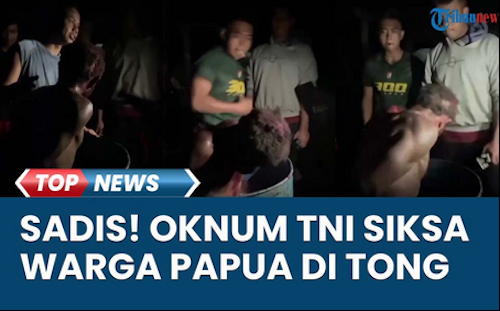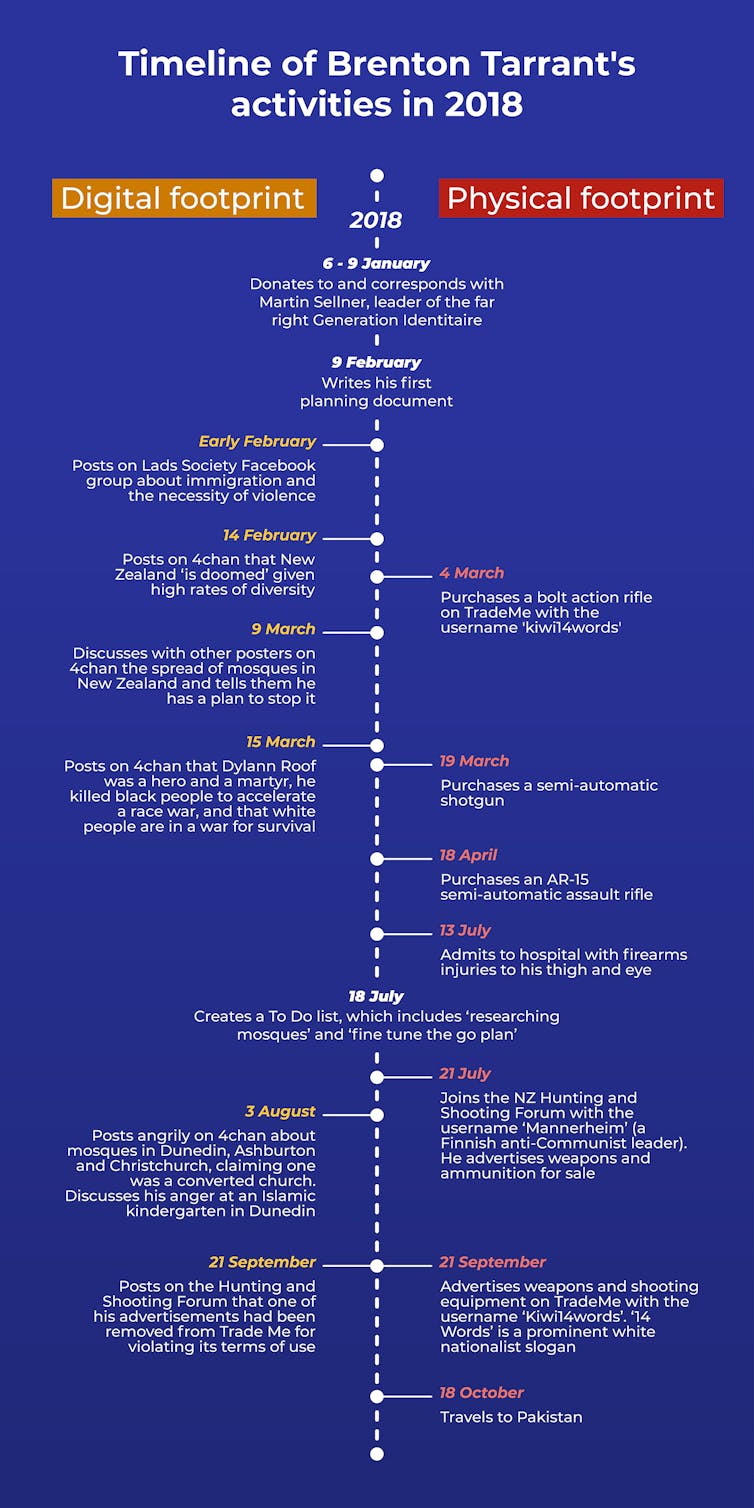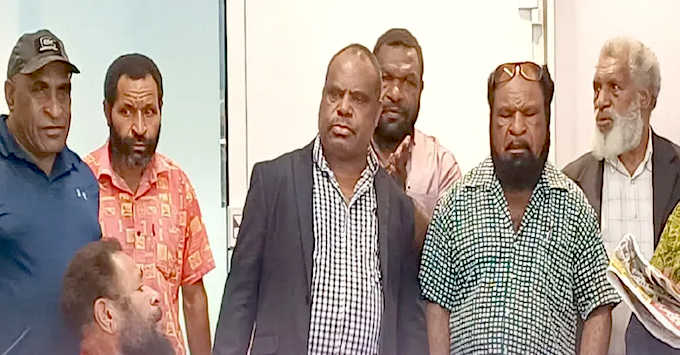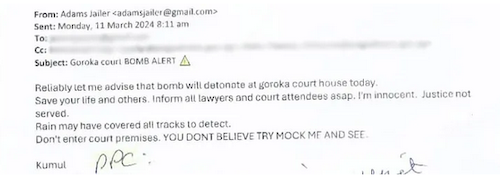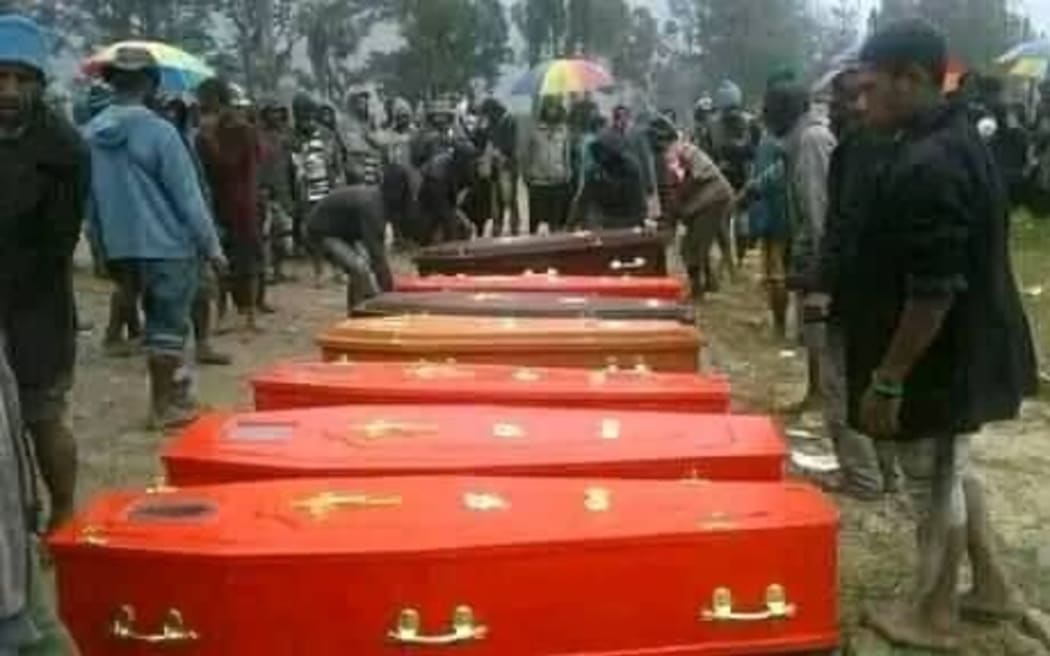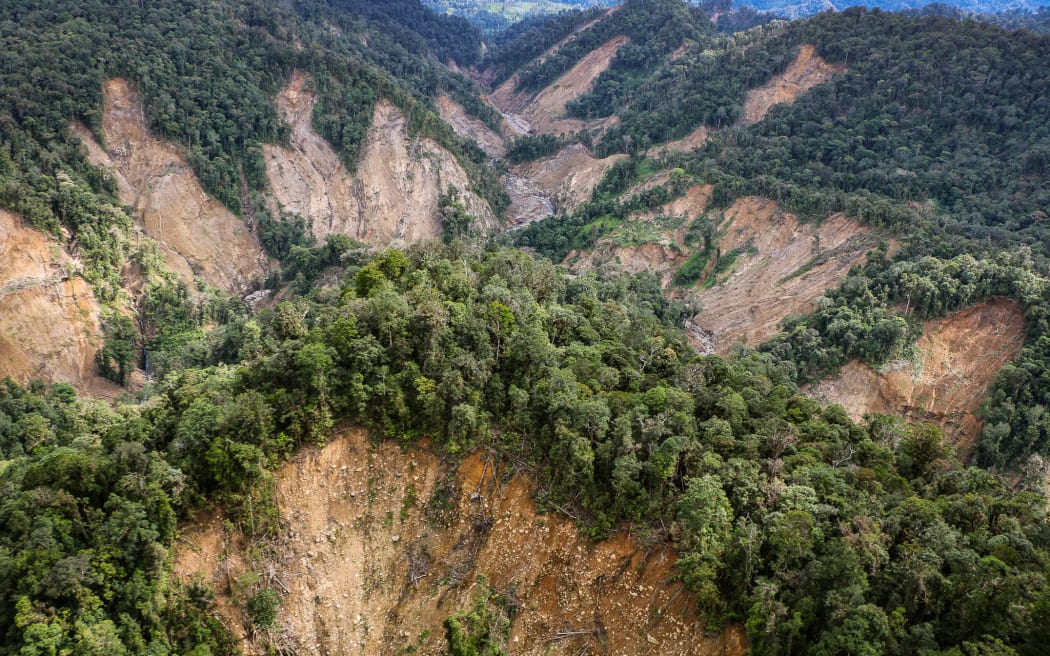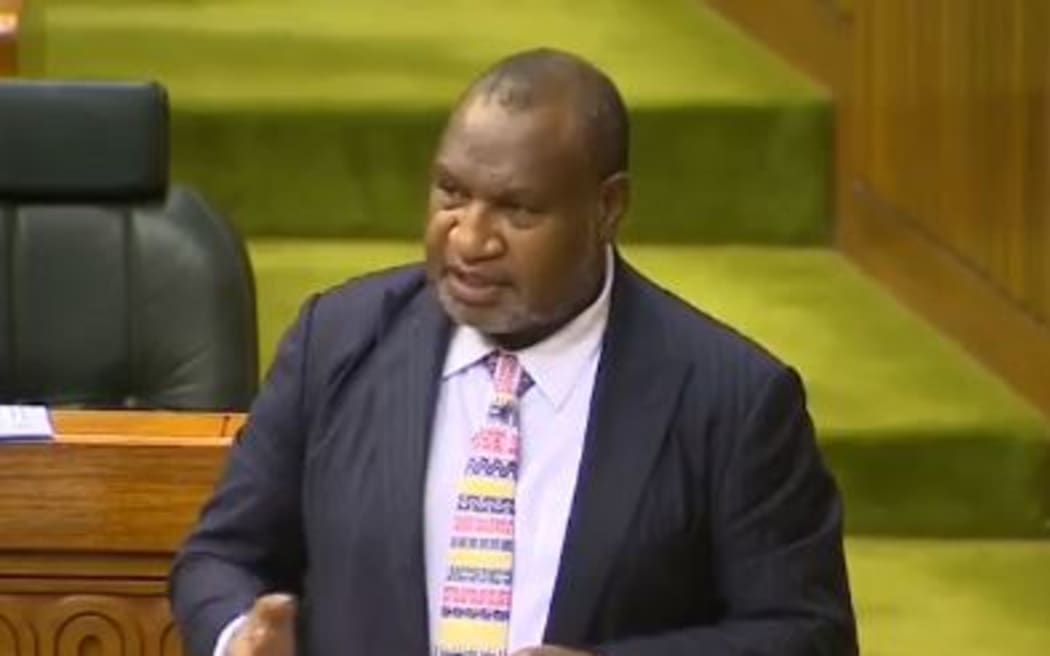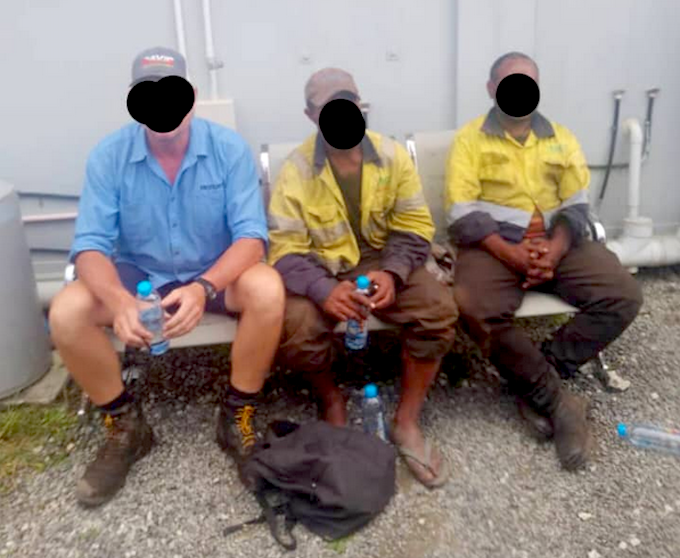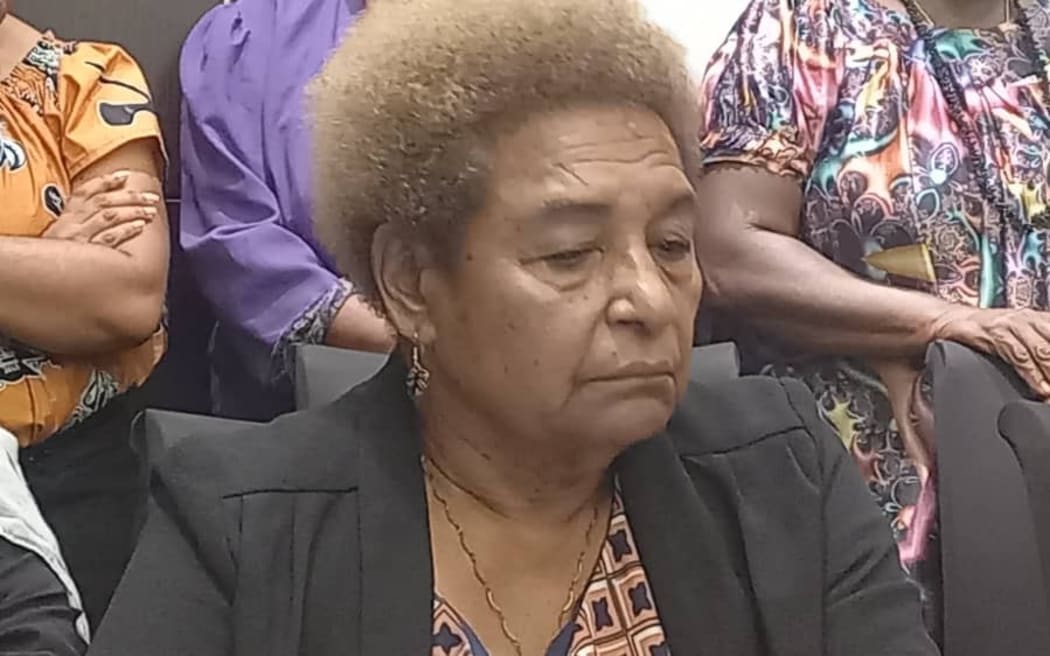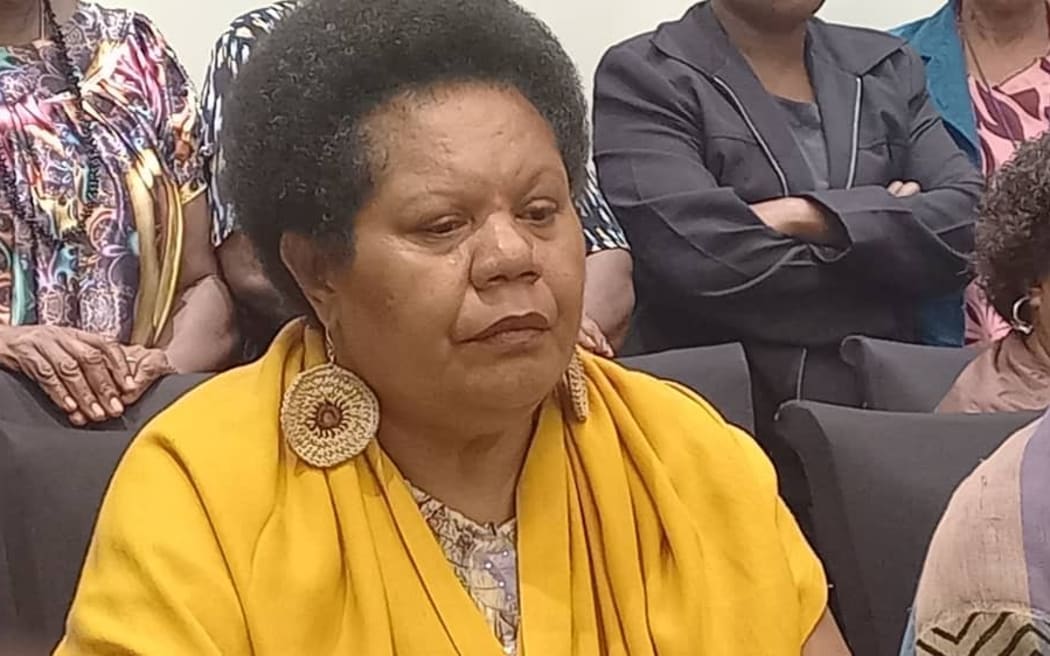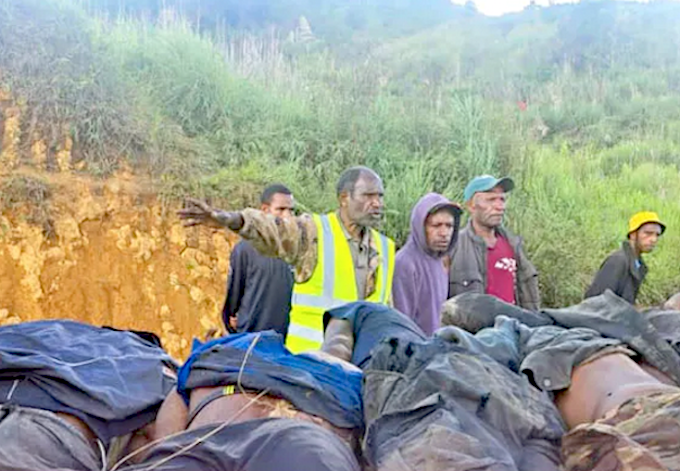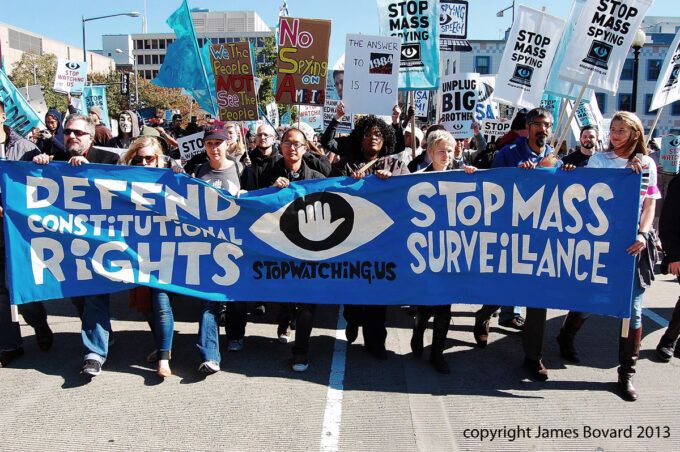
Photo: James Bovard.
Last December, one of the most intrusive provisions in the federal statute book was set to expire. Section 702 of the Foreign Intelligence Surveillance Act (FISA) authorizes the National Security Agency to vacuum up trillions of emails and other data. A bevy of bipartisan members of Congress called for radically curtailing those nullifications of Americans’ privacy.
But the effort to put a leash on the federal surveillance failed dismally. Congress voted for a four-month extension of FISA, which will likely be followed in April by a much longer extension. There was a bipartisan congressional conspiracy to entitle the Deep State to continue trampling the Constitution.
In 1978, Congress passed the Foreign Intelligence Surveillance Act to outlaw political spying (such as the FBI had committed) on American citizens. FISA created a secret court to oversee federal surveillance of suspected foreign agents within the United States, permitting a much more lenient standard for wiretaps than the Constitution permitted for American citizens.
The FISA court “created a secret body of law giving the National Security Agency the power to amass vast collections of data on Americans,” the New York Times reported in 2013 after Edward Snowden leaked court decisions. The court rubber-stamped FBI requests that bizarrely claimed that the telephone records of all Americans were “relevant” to a terrorism investigation under the Patriot Act, thereby enabling National Security Administration (NSA) data seizures later denounced by a federal judge as “almost Orwellian.” In 2017, a FISA court decision included a 10-page litany of FBI violations, which “ranged from illegally sharing raw intelligence with unauthorized third parties to accessing intercepted attorney-client privileged communications without proper oversight.”
FISA Section 702
The latest controversy involved FISA Section 702, first enacted by Congress in 2008. That section authorizes the National Security Agency to surveil targets in foreign nations regardless of how many Americans’ privacy is “incidentally” destroyed. The NSA collects vast amounts of information as part of that surveillance and then permits the FBI to sift through its troves. The Electronic Frontier Foundation warned more than a decade ago that Section 702 “created a broad national-security exception to the Constitution that allows all Americans to be spied upon by their government while denying them any viable means of challenging that spying.”
Professor David Rothkopf explained in 2013 how Section 702 worked: “What if government officials came to your home and said that they would collect all of your papers and hold onto them for safe-keeping, just in case they needed them in the future. But don’t worry … they wouldn’t open the boxes until they had a secret government court order … sometime, unbeknownst to you.” Actually, the law in practice is much worse.
A license for lying
From the beginning, federal agencies brazenly lied about the number of Americans whose privacy was ravaged. In 2014, former NSA employee Edward Snowden provided the Washington Post with a cache of 160,000 secret email threads that the NSA had intercepted. The Post found that nine out of ten account holders were not the “intended surveillance targets but were caught in a net the agency had cast for somebody else.” Almost half of the individuals whose personal data was inadvertently commandeered were American citizens. The files “tell stories of love and heartbreak, illicit sexual liaisons, mental-health crises, political and religious conversions, financial anxieties and disappointed hopes,” the Post noted. If an American citizen wrote an email in a foreign language, NSA analysts assumed they were foreigners who could be surveilled without a warrant.
FISA perils are compounded because, in practice, the FBI has a blank check for perjury in the name of Total Information Awareness. In 2002, the FISA court revealed that FBI agents had false or misleading claims in 75 cases, and a top FBI counterterrorism official was prohibited from ever appearing before the court again. Three years later, FISA chief judge Colleen Kollar-Kotelly proposed requiring FBI agents to swear to the accuracy of the information they presented; that never happened because it could have “slowed such investigations drastically,” the Washington Post reported. So FBI agents continued to have a license to exploit FISA secrecy to lie to the judges.
An abuse of power
In 2018, a FISA ruling condemned the FBI for ignoring limits on “unreasonable searches.” As the New York Times noted,
F.B.I. agents had carried out several large-scale searches for Americans who generically fit into broad categories … so long as agents had a reason to believe that someone within that category might have relevant information. But [under FISA] there has to be an individualized reason to search for any particular American’s information.
The FBI treated the FISA repository like the British agents treated general warrants in the 1760s, helping spark the American Revolution.
But Congress reauthorized Section 702 in 2018 regardless of the perpetual abuses of that power. Subsequent reports revealed that the congressional vote of blind confidence was misplaced. But Congress did oblige the feds to publicly disclose how often the FBI unjustifiably violated Americans’ privacy by snooping in the NSA catch-all archives.
The FBI exploited FISA to target 19,000 donors to the campaign of a candidate who challenged an incumbent member of Congress. An FBI analyst justified the warrantless searches by claiming “the campaign was a target of foreign influence,” but even the Justice Department concluded that almost all of those searches violated FISA rules. Apparently, merely reciting the phrase “foreign influence” suffices to nullify Americans’ rights nowadays. (In March, Rep. Darin LaHood (R-IL) revealed that he had been wrongly targeted by the FBI in numerous FISA 702 searches.)
Warrantless searches
In April 2021, the FISA court reported that the FBI conducted warrantless searches of the data trove for “domestic terrorism,” “public corruption and bribery,” “health care fraud,” and other targets — including people who notified the FBI of crimes and even repairmen entering FBI offices. If you sought to report a crime to the FBI, an FBI agent may have illegally surveilled your email. Even if you merely volunteered for the FBI “Citizens Academy” program, the FBI may have illegally tracked all your online activity. In 2019, an FBI agent conducted an unjustified database search “using the identifiers of about 16,000 people, even though only seven of them had connections to an investigation,” the New York Times reported.
As I tweeted after that report came out, “The FISA court has gone from pretending FBI violations don’t occur to pretending violations don’t matter. Only task left is to cease pretending Americans have any constitutional right to privacy.” FISA court Chief Judge James Boasberg lamented “apparent widespread violations” of the legal restrictions for FBI searches but shrugged them off and permitted the scouring of Americans’ personal data to continue.
Alas, there was no bureaucratic repentance. The feds revealed in 2022 that “fewer than 3,394,053” Americans’ privacy had been zapped by FBI warrantless searches using Section 702. Why didn’t the feds use an alternative headline for the press release: “More than 320,974,609 Americans not illegally searched by the FBI?” That report was issued by the Office of Civil Liberties, Privacy, and Transparency of the Office of the Director of National Intelligence. But there was scant transparency aside from a raw number that raised far more questions than it answered.
Almost two million of those searches involved an investigation of Russian hacking. Yet there aren’t that many hackers in the United States. The State Department’s Global Engagement Center presumed that anyone whose tweets agreed with a position of the Russian government should be banned by Twitter for being a Russian agent. Did the FBI use a similar “catch-all” standard to justify pilfering two million Americans’ email and other online data?
Exemption from the Constitution
In May 2023, a heavily redacted FISA court decision revealed that the FBI continued exempting itself from the Constitution. For each American that the FISA court authorized the FBI to target, the FBI illicitly surveilled almost a thousand additional Americans. The FBI admitted to conducting 278,000 illicit searches of Americans in 2020 and early 2021 (the period covered by the FISA court ruling released in May 2023).
The FBI conducted illegal secret searches of the emails and other data of 133 people arrested during the protests after the killing of George Floyd in 2020.
The FBI conducted 656 warrantless searches to see if they could find any derogatory information on people they planned to use as informants. The FBI also routinely conducted warrantless searches on “individuals listed in police homicide reports, including victims, next-of-kin, witnesses, and suspects.” Even the Justice Department complained those searches were improper.
The FBI seems to have presumed that any American suspected of supporting the January 6, 2021, Capitol ruckus forfeited his constitutional rights. An FBI analyst exploited FISA to unjustifiably conduct searches on 23,132 Americans citizens “to find evidence of possible foreign influence, although the analyst conducting the queries had no indications of foreign influence,” according to FISA Chief Judge Rudolph Contreras. The FBI also routinely conducted warrantless searches on “individuals listed in police homicide reports, including victims, next-of-kin, witnesses, and suspects.”
For 20 years, FISA judges have whined about FBI agents lying to the court. As long as the FBI periodically promises to repent, the FISA court entitles them to continue decimating the Fourth Amendment. Chief FISA Judge Contreras lamented: “Compliance problems with the querying of Section 702 information have proven to be persistent and widespread.” The FBI responded to the damning report with piffle: “We are committed to continuing this work and providing greater transparency into the process to earn the trust of the American people and advance our mission of safeguarding both the nation’s security, and privacy and civil liberties, at the same time.”
The FBI crime wave
FBI officials stress that any violations of Americans’ privacy is “incidental.” Since the FBI didn’t intend to violate Americans’ rights, it was a no-fault error — or millions of no-fault errors. There is no chance that police will adopt the same standard for absolving drunk drivers who did not intend to kill anyone they crashed into. Even when a media star such as Tucker Carlson may have been pulled into the 702 mire, the system manages to whitewash itself.
The FBI’s perpetual crime wave created a hornet’s nest on Capitol Hill. Rep. Andy Biggs (R-AZ) asked: “How much longer must we watch the FBI brazenly spy on Americans before we strip it of its unchecked authority?” Rep. Mike Garcia (R-CA) declared, “We need a pound of flesh. We need to know someone has been fired.”
House Republicans, led by House Judiciary Chairman Rep. Jim Jordan (R-OH), pushed a bipartisan reform of 702 named he Protect Liberty and End Warrantless Surveillance Act, which would have required the FBI to get a warrant from a federal judge for most of its queries to the NSA database. Jordan’s proposal would have also sharply reduced the number of FBI officials with access to the NSA trove. Jordan’s bill included the Fourth Amendment Is Not For Sale Act, which “stops law enforcement from buying data that should require a court order,” a scandal tagged in a New York Post op-ed headlined “Feds are buying your life with your tax dollars.”
Congressional impotence
FISA epitomizes the mirage of constitutional checks and balances in our times. When Congress returns to FISA with the short-term authorization, the House will consider a FISA “reform” bill the Intelligence Committee unanimously approved. The House Intelligence Committee acts like a wholly-owned subsidiary of the Deep State. Unfortunately, these are the members of Congress with special access to federal dirt — and they have largely chosen to ignore the crimes committed by the spies they champion and bankroll.
Former Justice Department lawyer Marc Zwillinger is one of a handful of FISA court amici allowed to comment on cases or policies in the secret court. He issued a public warning that the House Intelligence bill expands the definition of “electronic communication service providers” covered by FISA compliance obligations to include “business landlords, shared workspaces, or even hotels where guests connect to the Internet.”
In other words, the FISA expansion could affect your next visit to Comfort Inn — and you thought Wi-Fi service was already bad! Former Justice Department lawyer Elizabeth Goitein warns, “Hotels, libraries, coffee shops, and other places that offer wifi to their customers could be forced to serve as surrogate spies. They could be required to configure their systems to ensure that they can provide the government access to entire streams of communications.” The bill could also cover any repairman who works on such equipment. That bill should be titled, Biden Big Brother Better Act.
The FISA reauthorization was included in the National Defense Authorization Act of 2024, a 3000-page “must pass” bill that Congress considered in December. Sen. Mike Lee (R-Utah), who led the opposition to the bill in the Senate, urged fellow senators not to “trust any bill so large that it has to be delivered by handcart.” But to no avail.
The tyranny of the FISA court
The FISA court has perpetually dismally failed to defend Americans’ constitutional rights. Washington must finally admit that there is no secret “doing God’s work” clause in the Constitution that entitles FBI agents to trample Americans’ privacy and liberty.
Will Congress show more gumption when the short-term FISA reauthorization expires in April? When FISA was up for renewal in 2012, I tweeted, “Only a fool would expect members of Congress to give a damn about his rights and liberties.” Unless Congress puts me to shame, FISA should be renamed the “‘Trust Me, Chumps!’ Surveillance Act.”
This article was originally published in the March 2024 issue of Future of Freedom.
The post The Never-Ending Federal Surveillance Crime Spree appeared first on CounterPunch.org.
This content originally appeared on CounterPunch.org and was authored by James Bovard.
This post was originally published on Radio Free.

